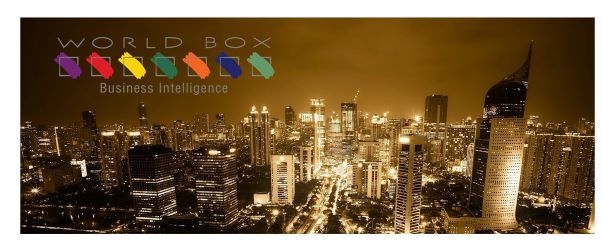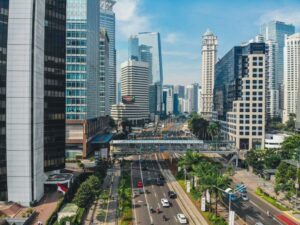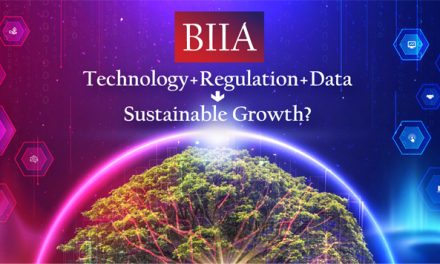Worldbox Intelligence Risk Rating February 2023
INDONESIA
SUMMARY
Political risk: Stable 8/10
Economic risk: Upgrade 8/10
Commercial risk: Stable 8/10
The risk assessment of a country is made up of 3 components, being Political, Economic and Commercial. Each component is scored out of 10 with 1 being the highest risk and 10 the lowest.
Political Risk – Stable 8/10
President Joko Widodo (Jokowi, as the president is popularly known), first elected in 2014 and re-elected in 2019, remains popular with the electorate despite his government’s failure to deal effectively with the COVID-19 pandemic. Jokowi’s ruling coalition dominates parliament, controlling 82% of the 575 seats in the House of Representatives.
Contenders for the 2024 presidential election are already jockeying for position. Defense Minister Prabowo Subianto has announced he will run for the presidency in 2024, the third time he will have tried to gain the post. He ranks highly in popularity surveys on the back of his strongman image and support from the majority Muslim population.
Other likely candidates include Ganjar Pranowo, the current governor of Central Java, who vies with Prabowo for first place in the opinion polls, while the current governor of Jakarta, Anies Baswedan, is ranked in third place. Gaining the backing of ex-president Megawati Sukarnoputri is likely to prove crucial. She is likely to choose between Pranowo or her daughter, Puan Maharani, to carry the ruling Indonesian Democratic Party for Struggle’s banner. Given that Puan is struggling in the polls, Megawati may have little option but to sacrifice her daughter’s political ambitions for the sake of the party and back Pranowo.
Economic Risk – Upgrade 8/10 from 7
Indonesia’s economic record will prove critical in determining whether Jokowi can retain popular support and build a political dynasty as his son and son-in-law embark on political careers. In March 2022, the IMF – after concluding an Article IV consultation – praised Jakarta for responding to the pandemic with a bold, comprehensive, and well-coordinated policy package that has successfully maintained economic and financial stability. However, the organisation warned that the pandemic had caused scarring and reinforced the need to tackle long standing challenges, including a low revenue intake and shallow financial markets.
The economy is much more dependent on domestic demand than other regional economies. Exports account for just 20% of GDP, compared to 60% for Thailand and 176% for Singapore. Investment expenditure accounts for around 30 percent of total GDP in Indonesia – the second-largest contributor after consumer spending – with foreign direct investment a key driver of investment spending.
Overall, Indonesia retains many economic advantages, including an abundance of natural resources, a large and youthful working population, and a growing middle class. The banking system is also robust, with relatively low levels of non-performing loans and strong public finances. Indeed, it is tipped by many analysts to rise steadily through the economic rankings in the coming decades. In 2022, for example, the advisory firm Wellington Capital, forecast Indonesia could be the world’s fourth largest economy by 2030 on current trends.
The country also appears well placed to absorb external shocks, according to the IMF: it has ample FX reserves; the need for foreign financing is limited with a current account in 2022 finishing in surplus; the public debt ratio is relatively low; and it has improved capacity to deal with COVID-19 infections. The long-term local-currency government bond yield also maintains a comfortable margin over the global benchmark, which should also help reduce capital outflow pressures under risk scenarios.
Commercial Risk – Stable 8/10
Corruption remains a challenge and acts as a major deterrent to business and investment. Indonesia is ranked 96th (out of 180 countries) in Transparency International’s Corruption Perception Index (CPI) for 2021 with a CPI score of 38 – an increase from 37 in 2020, when Indonesia ranked 102nd. Corruption ranges from ministerial offices in Jakarta to village bureaucracies. A law passed in 2019 has restricted the ability of the Corruption Eradication Commission (KPK) to carry out investigations, while KPK officials have been subject to physical attacks and senior investigators have been dismissed, seemingly without good grounds.
Indonesia is ranked 73rd out of 190 countries in the World Bank’s latest Ease of Doing Business guide, up from 91st out of 180 in 2016. Persistent trade and investment barriers (driven by protectionist sentiment), persistent and pervasive corruption, poor infrastructure, inconsistent interpretation and enforcement of laws, and labour rigidity are the greatest challenges facing businesses and the economy, according to the latest US Country Commercial Guide for Indonesia.
Indonesia’s economic freedom score (from the Heritage Foundation) is 64.4, and it ranks 63rd in the 2022 Index. It ranks 10th among 39 countries in the Asia–Pacific region, and its overall score is above the regional and world averages. Indonesia has recorded a 2.5-point overall gain of economic freedom since 2017 and remains in the middle ranks of the “Moderately Free” countries. The weight of government spending on the economy is light, but the rule of law is relatively weak, says Heritage.
February Bulletin
Political Risk – Stable 8/10
President Joko Widodo faces little challenge with a dominant parliamentary majority and strong popular support. Polls show the President’s approval ratings remain healthy, with voters split on whether the economy or health should be the government’s priority.
In November, Jokowi all but named Central Java Governor Ganjar Pranowo as his preferred successor as president. Addressing a rally of supporters in Jakarta, Jokowi urged them to vote for a “fully white-haired” leader – Pranowo is the only presidential hopeful with a full head of white hair among the most popular contenders for the 2024 elections.
In October, tens of thousands of students and labour union activists demonstrated across 35 cities in Indonesia over the government’s September decision to reduce fuel subsidies. Many Indonesian households suffered substantial hardship during the Covid lockdowns and very few received the social assistance funds they pledged by the government.
The hike in fuel costs will hit many Indonesians hard: the vast majority rely upon their motorcycles for transport. Furthermore, the cost of basic items has soared – food prices rose at an annual pace of 9.02% in September before easing to 7% in October – while the government has increased the minimum wage by just 1.09%. Indonesians also faced increases in electricity prices, higher value-added taxes, and hikes in national health insurance premiums.
Further political unrest cannot be ruled out given this background. The government will be particularly wary of a rise in student demonstrations. Students led the protests in 1998 that brought down the Suharto regime and opened the door to democratic reform.
Economic Risk – Upgrade, 8/10 from 7
Soaring commodity prices supported the economy in 2022 with growth likely to have peaked at an annual pace of 5.9% in the third quarter. The global economic slowdown is likely to impact growth in the final three months of the year. In November 2022 Bank Indonesia (BI) forecasted overall growth towards the upper end of 4.5% to 5.3%. However, the central bank anticipates growth will slow to 4.37% in 2023 partly due to the impact of domestic monetary tightening.
Earlier in November, BI raised its key policy rate for a fourth consecutive month in a move aimed at anchoring inflation expectations, which the governor said were “too high”. In total, BI has lifted interest rates by 175 basis points since August.
The annual headline inflation rate cooled to 5.71% in October but remained near the seven-year high of 5.95% recorded in September. Inflation, already under pressure due to high global food prices, has accelerated after the government raised subsidised fuel prices by about 30% in September. Inflation will return to the target range of 2%-4% in 2023 and 1.5%-3.5% in 2024, according to central bank forecasts. These appear credible given slowing economic growth, and the easing of global trade bottlenecks.
The seven-day reverse repo rate stood at 5.25% following the November hike. Further hikes are likely given that inflation remains well above BI’s target range of 2-4%. By the end of November, the rupiah had fallen around 9% against the dollar with the greenback boosted by the Federal Reserve’s aggressive monetary tightening in 2022. Bank Indonesia said in late 2022 that it stands ready to further raise interest rates and boost short-term bond yields to support the rupiah into 2023.
The IMF believes fiscal policy is likely to be tightened with the government seemingly intent on reducing the budget deficit to 3% of GDP by 2023, from 5.31% in 2022. By law, Indonesia’s budget deficit must be under 3% of GDP in 2023.
The budget for fiscal 2023, announced in August 2022, certainly appears in line with the IMF’s analysis. The government’s projection that the budget deficit will fall to 2.85% of GDP in 2023 also matched Fitch’s expectation when it affirmed the country’s ratings at ‘BBB’ with a Stable Outlook in June 2022, according to the agency.
Fitch added that the government’s assumption, upon which the budget is based, appear credible. Furthermore, the country has a record of “prudent fiscal policy management, which we believe lends credibility to its budget deficit target”, says Fitch.
Commercial Risk – Stable 8/10
In its 2022 Article IV review of the economy, the IMF reported that the financial system appears sound, and the credit outlook is improving. It said that a credit rebound in 2021 had been bolstered by accommodative monetary and macroprudential policies, as well as improved access to government guarantees for bank lending to SMEs and corporates. It added that while asset quality risks have generally declined with the economic recovery but are still elevated in sectors hard-hit by the pandemic. The IMF concluded that although crisis-related measures are still in place, intensive supervision will be required to ensure prudent lending.
Fitch expects loan growth at Indonesia’s largest banks to accelerate to around 8% in 2022, assisted by improved business and consumer sentiment as the economic recovery intensifies. Fitch adds that profitability prospects for most Indonesian banks remain favourable in 2022. This view is based on the agency’s expectations of higher business volumes, lower credit costs as asset quality improves gradually. It believes cost efficiencies will also rise due to the pandemic-induced acceleration of business through digital – rather than traditional – channels.
About Worldbox Business Intelligence
An independent service, Worldbox Business Intelligence provides online company credit reports, company profiles, company ownership and management reports, legal status and history details, as well as financial and other business information on more than 50 million companies worldwide, covering all emerging and major markets.
Worldbox was founded in the 1980s, with the vision to become a global business provider. Its ability to deliver data in multiple languages in a standard format has strengthened its brand.
Copyright (C) 2022 Worldbox Business Intelligence. All rights reserved.
Our mailing address is:
Worldbox Business Intelligence
Breitackerstrasse 1
Zollikon
Zurich 8702
Switzerland





























